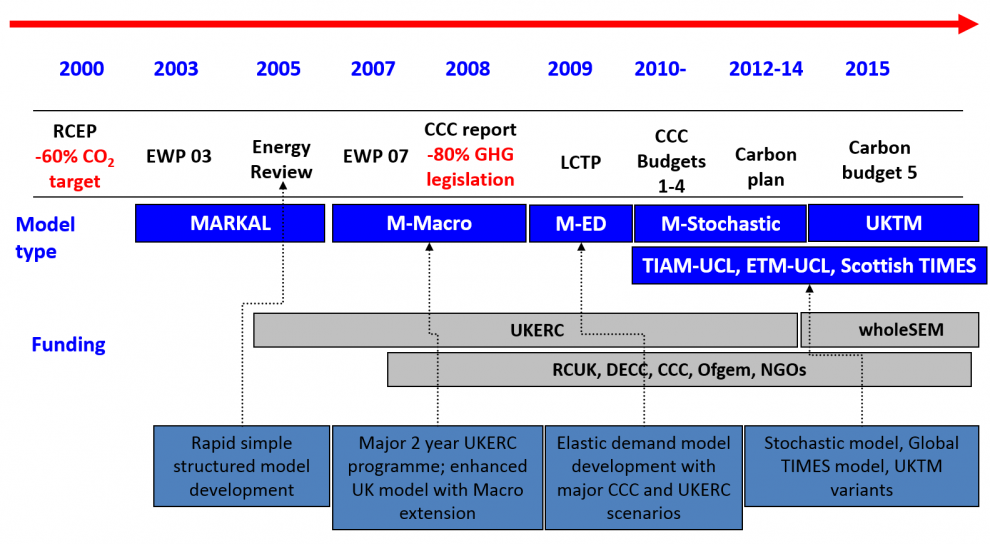We work closely with government, industry and the third sector to disseminate the findings of our research and to ensure that our research is relevant to the needs of the UK and to international organisations. The UCL Energy Institute is closely involved with major international energy modelling networks including the International Energy Agency's ETSAP network and the work feeding into the Intergovernmental Panel on Climate Change via the IAMC network. Closer to home, our modelling work quantifies and contributes to a range of UK policy initiative including DECC, CCC, ETI and Ofgem.
Two specific examples of the policy impact of our models are given below.
UK MARKAL
UK MARKAL is an energy systems model that has had a profound influence on UK decarbonisation policy as summarised in the diagram below.
Studies using UK MARKAL underpinned the Energy White Papers (EWP) in 2003 and 2007, the Climate Change Bill 2008, the first report of the Committee on Climate Change (CCC) and the CCC and DECC fourth carbon budget reports.

GloTraM
GloTraM is a techno-economic model of the global shipping industry. The model produces estimates of international shipping's GHG emissions as a function of a macro-economic scenario (trade), price data (fuel and carbon) and other policy. Outputs include the impacts of policy on transport costs.
This work has applications for greenhouse gas mitigation policy development (both Command and Control and Market Based Measures) on global (International Maritime Organisation), regional and national scales. The model analyses a number of non-GHG emissions and air pollutants, for which there are also policy applications.
In addition to policy impact, the model is in use in a number of multi-national organisations for assistance in strategic decision making.
 Close
Close

